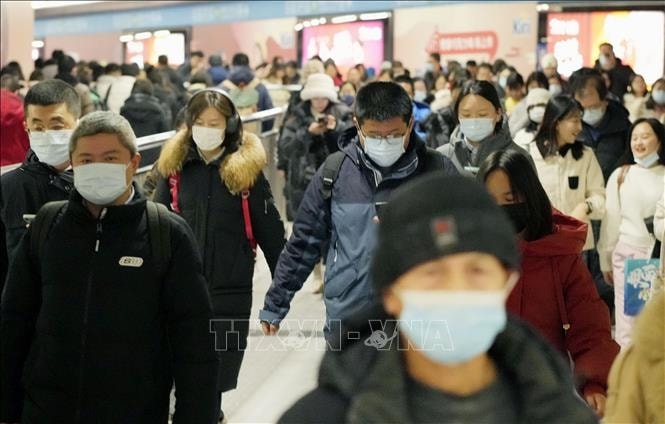China's Foreign Ministry said it remains in close contact with the World Health Organization (WHO) on respiratory diseases amid a surge in human papillomavirus (HMPV) infections in the country.

Speaking at a regular press conference, Mr. Guo Jiakun, spokesman for the Chinese Ministry of Foreign Affairs, affirmed that the Chinese government is very concerned about the health of its people as well as foreigners in China, however, HMPV is not a new virus and has been circulating in humans for more than 60 years.
In a recent statement, the Chinese Center for Disease Control and Prevention (CDC) said the number of HMPV infections remained high, but was comparable to that in other parts of the Northern Hemisphere. He stressed that "common viruses should not be exaggerated as strange viruses."
Earlier, on January 7, WHO said it had contacted Chinese health authorities. According to WHO, the number of acute respiratory infections, including seasonal influenza, RSV, rhinovirus and HMPV, has increased in recent weeks. However, data released by China up to December 29, 2024 shows that this situation is within the expected range and there are no signs of abnormalities.
WHO confirms that HMPV is a common respiratory pathogen, circulating from winter to spring in many countries, although not all countries conduct surveillance and publish data regularly.
According to WHO, most HMPV infections cause only mild symptoms similar to the common cold and resolve on their own within a few days. A small number of cases may require hospitalization for bronchitis or pneumonia, especially in the elderly, young children or those with underlying health conditions.
WHO confirms that HMPV is just one of many common respiratory pathogens, and that an increase in the virus in China and other countries during the winter is to be expected. WHO continues to monitor the global situation and will provide updates as necessary.